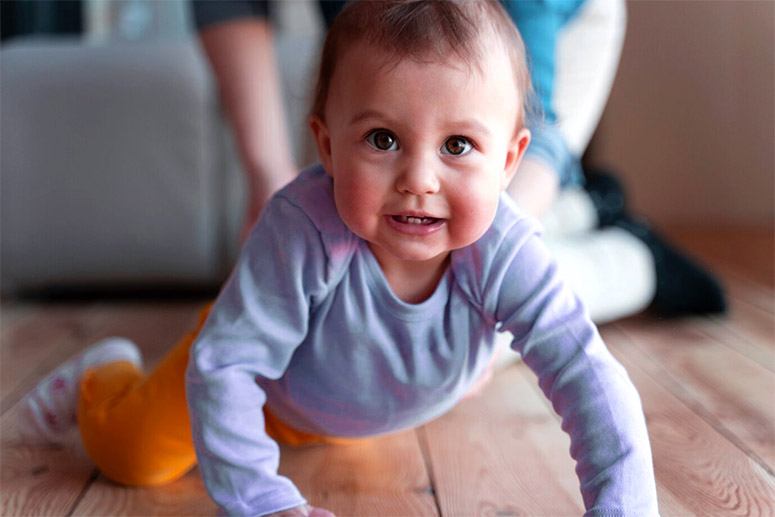Contents
Down syndrome is a genetic condition that impacts numerous families globally. Understanding its causes, diagnostic processes, and available options for parents is essential for those navigating this experience.
Many may wonder, ‘What are the odds of having a Down syndrome baby?’ This article provides an overview of what Down syndrome entails, the factors that influence the likelihood of having a child with the condition, including maternal age, and addresses the various screening and diagnostic tests.
Additionally, it explores the support and medical resources available for families.
This exploration aims to illuminate the critical aspects of Down syndrome and the resources accessible to affected families
What is down syndrome?
Down Syndrome is a genetic disorder resulting from a chromosomal abnormality characterized by the presence of an additional copy of chromosome 21.
This anomaly leads to various developmental delays and congenital conditions. It is a widely recognized condition that affects individuals across a range of ethnicities and backgrounds, significantly impacting their health, education, and overall quality of life.
In recent years, awareness of Down Syndrome has increased, contributing to a greater understanding of the condition, its associated symptoms, and the support required for affected individuals and their families.
What causes down syndrome?
The primary cause of Down Syndrome is a genetic disorder resulting from a chromosomal abnormality characterized by the presence of an extra copy of chromosome 21, referred to as Trisomy 21.
This genetic predisposition may be influenced by several factors, with maternal age being a significant determinant in the likelihood of conception resulting in Down Syndrome.
As maternal age increases, particularly beyond the age of 35, the risk of nondisjunction – an event where chromosomes fail to separate properly during cell division – also rises, thereby increasing the likelihood of chromosomal abnormalities.
Additionally, paternal age can contribute to genetic mutations, as older fathers may experience a heightened risk of mutations in sperm, which can further affect the risk of genetic disorders.
Family history may also exacerbate these risks, underscoring the complex interaction of genetic and environmental factors. Understanding these mechanisms is essential for prospective parents when evaluating their chances of having a child with chromosomal conditions.
What are the odds of having a down syndrome baby?

The likelihood of having a child with Down Syndrome can vary considerably due to several risk factors, with maternal age being particularly influential. Statistics show that the risk increases for women aged 35 and older.
A range of prenatal testing methods is available to evaluate these probabilities, offering expectant parents essential information regarding the health of their child and the potential risks associated with Down Syndrome.
What factors affect the odds?
Several key factors can influence the likelihood of having a baby with Down Syndrome, including maternal age, family history of genetic disorders, and ethnic background, as certain ethnicities exhibit varying prevalence rates.
Additionally, environmental factors and lifestyle choices may also contribute to the likelihood of chromosomal abnormalities.
Understanding these aspects is essential for expectant parents as they navigate the complexities of family planning.
For example, older mothers statistically face a higher risk, with the prevalence significantly increasing after the age of 35.
Specific populations, such as those of Hispanic and Caucasian descent, may have differing rates of occurrence, highlighting the importance of demographic factors in prenatal assessments.
As a result, informed family planning encourages parents to acknowledge these variables, allowing them to make educated decisions and underscoring the necessity for genetic counseling when appropriate.
Such insights can have a profound impact on how families prepare for the arrival of a new child.
How does maternal age affect the odds?
Maternal age is a significant risk factor influencing the likelihood of having a child with Down Syndrome. Research indicates that women over the age of 35 face a higher risk compared to younger mothers.
The probability of having a child with Down Syndrome increases notably with advancing age, underscoring the importance of prenatal testing and knowledge-based decision making for prospective parents.
Specifically, statistics reveal that a 25-year-old mother has approximately a 1 in 1,250 chance of giving birth to a child with Down Syndrome, whereas this risk escalates to approximately 1 in 100 for a mother at the age of 40.
This concerning increase compels older mothers to consider various screening options, such as non-invasive prenatal testing (NIPT) and chorionic villus sampling (CVS), which can offer early insights into the genetic health of the fetus.
By acknowledging their elevated risk, expectant parents can engage in more comprehensive discussions with healthcare providers, ultimately facilitating more personalized prenatal care tailored to their specific circumstances.
Are there any other risk factors?
Along with maternal age, several other risk factors for Down Syndrome have been identified, including a family history of chromosomal abnormalities, genetic predisposition, and paternal age.
Emerging research indicates that advanced paternal age may also contribute to the likelihood of genetic disorders in offspring. Furthermore, environmental factors and maternal nutrition add complexity to this array of risk factors.
Recent studies have underscored the potential impact of exposure to environmental toxins, such as heavy metals and pesticides, which may disrupt normal genetic processes and potentially increase the risk of chromosomal conditions like Down Syndrome.
Specific maternal health issues, including diabetes and thyroid disorders, have also been associated with heightened risks.
Ongoing investigations are examining the influence of lifestyle choices such as diet, weight, and stress levels –alongside genetic predispositions to provide a more comprehensive understanding of the factors influencing the development of this condition.
A thorough understanding of these multifaceted connections is essential for the advancement of preventive measures and knowledge-based decision making for expectant parents.
How is down syndrome diagnosed?

Down syndrome is diagnosed through a combination of screening tests and diagnostic tests that provide essential information regarding the genetic health of the fetus during pregnancy.
Screening tests are generally non-invasive and serve to indicate the probability of down syndrome, whereas diagnostic tests such as amniocentesis and chorionic villus sampling yield definitive results.
This information is crucial for enabling parents to make informed decisions regarding their pregnancy.
What are the different types of screening tests?
There are several types of screening tests available for Down Syndrome, including non-invasive blood tests and ultrasounds, which are designed to assess the risk of chromosomal abnormalities in the developing fetus.
These prenatal testing methods often serve as the initial step in evaluating the likelihood of Down Syndrome and can provide valuable information for parents.
Screening tests such as the first-trimester combined test, which includes a blood draw and a nuchal translucency ultrasound, as well as the second-trimester quad screen blood test, which measures specific biomarkers, play a critical role in risk assessment.
By analyzing factors such as maternal age, family history, and the results from these tests, healthcare providers can calculate the probability that a fetus may have Down Syndrome, thereby aiding parents in making informed decisions.
Statistics demonstrate that non-invasive screenings possess a high accuracy rate, establishing them as an essential tool in modern prenatal care and emphasizing the importance of informed choices during early pregnancy.
What is the accuracy of these tests?
The accuracy of screening tests for Down Syndrome varies significantly, with certain tests exhibiting higher sensitivity and a lower rate of false positives than others.
Diagnostic tests, although more invasive, provide a definitive diagnosis, making it essential for expectant parents to comprehend the accuracy of these tests.
Healthcare professionals play a critical role in guiding parents through the complexities associated with these tests, ensuring they understand not only the potential outcomes but also the implications of false positives.
For instance, while a non-invasive prenatal screening may indicate a high probability of Down Syndrome, it is not conclusive and may cause unnecessary anxiety until confirmed by a more definitive diagnostic test, such as amniocentesis.
Recognizing the differences in sensitivity and specificity allows parents to make informed decisions, balancing the necessity for thorough investigation with the emotional burden of uncertainty during pregnancy.
What is the diagnostic test for down syndrome?
The primary diagnostic tests for Down Syndrome are amniocentesis and chorionic villus sampling. Both procedures involve the collection of amniotic fluid or placental tissue for chromosomal analysis of the fetus.
These invasive genetic testing methods provide accurate confirmation of Down Syndrome and can assist parents in their future planning.
Expectant parents considering these procedures should be aware that amniocentesis is typically conducted between the 15th and 20th week of pregnancy, whereas chorionic villus sampling is usually performed during the 10th to 13th week.
Each test presents its own set of advantages and potential risks – for example, while amniocentesis has a slightly elevated risk of miscarriage, it offers a more comprehensive genetic analysis. Conversely, chorionic villus sampling may yield faster results.
In both scenarios, genetic counseling is crucial, as it aids parents in navigating the complexities of their options and the implications of the results, thereby promoting knowledge-based decision making.
What are the options for parents of a baby with down syndrome?

Parents of infants with Down Syndrome have access to a range of resources, including support groups, educational materials, and early intervention services that can considerably enhance their child’s developmental outcomes.
These resources offer essential emotional support, guidance on parenting, and information on navigating healthcare systems, ultimately improving the quality of life for both the child and the family.
What support and resources are available?
A comprehensive array of support and resources is available for parents of children with Down Syndrome, encompassing both local and national support groups that provide emotional assistance, advocacy, and practical guidance on effective parenting strategies.
These resources are instrumental in assisting families as they navigate the complexities of raising a child with Down Syndrome, promoting community connection and shared experiences.
Organizations such as the National Down Syndrome Society are among those that offer valuable information and resources, encouraging advocacy efforts at both local and national levels.
Additionally, online forums serve as a platform for parents to connect, exchange insights, and find comfort in shared experiences.
Community programs specifically designed for children with developmental disabilities frequently include workshops and social events that not only enhance the lives of children but also enable parents by providing networking opportunities.
By prioritizing emotional well-being, these initiatives help families feel less isolated and more prepared to support their children’s unique needs.
What are the medical treatment options?
Medical treatment options for children with Down Syndrome typically concentrate on addressing developmental delays and associated health concerns, incorporating a range of therapies and interventions tailored to meet individual needs.
Access to high-quality healthcare and early intervention strategies can significantly enhance outcomes for these children.
Interventions may include physical therapy to improve motor skills, speech therapy to promote effective communication, and occupational therapy designed to develop daily living skills.
Medical professionals often recommend regular screenings for prevalent health issues, such as congenital heart defects or vision impairments, to ensure timely management of any emerging problems.
Early identification and treatment of these conditions are essential, as they can optimize development and equip children with the necessary tools to succeed in various settings, including at home and in school.
By adopting a holistic approach to care, the well-being and potential of children with Down Syndrome can be substantially improved.
What is the prognosis for individuals with down syndrome?
The prognosis for individuals with Down Syndrome has significantly improved over the years, owing to advancements in medical care, early intervention, and educational support.
These developments have contributed to an enhanced quality of life and increased life expectancy for this population.
Many individuals with Down Syndrome are now able to lead fulfilling lives, engage in meaningful relationships, and pursue educational and vocational opportunities.
Recent statistics indicate that the average life expectancy for individuals with Down Syndrome has risen to approximately 60 years, a remarkable increase compared to just a few decades ago.
This improvement is largely attributed to advancements in healthcare that effectively address the common health issues associated with the condition.
The quality of life for individuals with Down Syndrome can vary considerably – however, those who receive consistent support from family, peers, and professionals often experience enhanced emotional and social well-being.
Long-term outcomes are further influenced by continued advocacy and specialized programs, underscoring the essential role of ongoing support services in enabling individuals to thrive and integrate successfully into their communities.
Our FAQ on the chances of having a baby with Down syndrome is available further down the page.
Step into the fascinating world of probabilities and exceptional events. Enrich your curiosity and knowledge by exploring our articles at WhatAreTheOddsOf.NET.



